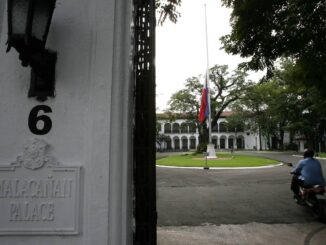
THE government has launched its nationwide rice price monitoring to assess the impact of the rice tariff reduction across the entire supply chain, from importers to retailers.
According to a news release on Saturday, the Department of Trade and Industry (DTI), in cooperation with the Department of Agriculture (DA), launched the extensive price monitoring initiative, which covers a wide range of retail markets, including supermarkets, hypermarkets and grocery stores under the DTI’s jurisdiction, as well as wet markets under the DA’s purview.
President Ferdinand Marcos Jr.’s Executive Order 62, issued in June, reduced the tariff on rice from 35 percent to 15 percent and tariffs on other agricultural products.
DEPARTMENT of Trade and Industry (DTI) Secretary Alfredo Pascual. PHOTO BY J. GERARD SEGUIA
Trade Secretary Alfredo Pascual, who also chairs the National Price Coordinating Council (NPCC), said his department would remain steadfast in the rigorous monitoring and analysis of rice price fluctuations.
“These data-driven reports will inform policymakers’ decisions to ensure stable rice supply, distribution, and pricing,” Pascual said.
Composed of the secretaries of the departments of trade and agriculture, as well as representatives of the consumer, agricultural, trading and manufacturing sectors, the NPCC plays a crucial role in coordinating national efforts to stabilize and control the prices of essential goods and prime commodities.
Pascual, meanwhile, commended members of Congress for ensuring price stability and protecting consumer interests by combatting hoarding, profiteering, and smuggling.
“We at the DTI deeply appreciate the tireless work of these legislators in holding price manipulators and violators accountable. Their actions align perfectly with our mission to empower and care for consumers while fostering fair competition for legitimate businesses,” he said.





Be the first to comment